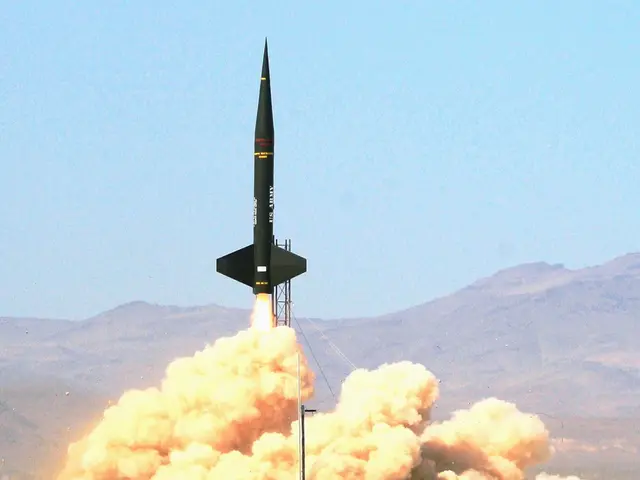Kashmir Conflict Erupts: A Clash of Nuclear Powers
Intense Attacks by Pakistan on Kashmir Border Region in India
The Land of Kashmir, a disputed territory between India and Pakistan, has once again become the epicenter of an intense and potentially dangerous conflict. Over the past few weeks, the situation has escalated to unprecedented levels, with both nations exchanging fire and accusations.
Current Tensions
- Latest Incident: A devastating terrorist attack on April 22, resulting in the deaths of 26 Indian tourists and a Nepalese citizen, has caused significant unrest. India holds Pakistan responsible for the incident, a claim vehemently denied by Pakistan.
- Recent Aggression: Pakistan has reportedly launched attacks on various military installations in the Indian-controlled part of Kashmir using rockets and drones. These allegations have been refuted by Pakistan, citing baseless media accusations.
Signs of Escalation
- Aerial Engagement: On May 7, paramilitary forces in Wuyan, Indian-administered Kashmir, fortified their positions amid rising aggression. This incident culminated in India launching missile strikes against Pakistani territory, prompting Pakistan to shoot down Indian aircraft in retaliation.
- Public Response: Eyewitnesses report loud explosions, power outages, and fleeing civilians in various parts of Jammu and Kashmir, adding to the sense of growing crisis.
Global Concern
Key world leaders, including UN Secretary-General António Guterres, are urging both nations to take diplomatic efforts to defuse the tension. This global concern stems from the fact that any further escalation could have catastrophic consequences due to both countries' nuclear capabilities.
Expert Analysis
Experts believe that economic sanctions, international mediation, dialogue, and confidence-building measures may help reduce tensions and prevent the conflict from expanding. Furthermore, regional stability is crucial not only for India and Pakistan but also for neighboring countries, given the potential for a broader conflict.
As the situation in Kashmir continues to unfold, it is crucial to remain vigilant and hopeful for a peaceful resolution. The international community must approach the issue with a sense of urgency to prevent further loss of life and potential catastrophe.
Sources: ntv.de, gut/dpa/AFP/rts
- India
- Pakistan
- Nuclear Weapons
- Wars and Conflicts
- Military Deployments
- Drones
- The ongoing Kashmir conflict, a disputed territory between India and Pakistan, is governed by the community policy of the involved nations, which aims to maintain peace and order.
- Recent employment policies in both India and Pakistan should prioritize de-escalation and diplomatic efforts to address the escalating tensions in Kashmir, given the potential risks posed by war-and-conflicts and military deployments.
- Political leaders in both nations should be cautious in their language and actions regarding the Kashmir crisis, avoiding baseless accusations and inflammatory rhetoric, particularly on platforms like WhatsApp, to reduce tensions.
- With the potential for nuclear war looming over the Kashmir conflict, it is crucial for international general news outlets to cover the situation accurately and responsibly, avoiding sensationalism and promoting dialogue instead.







